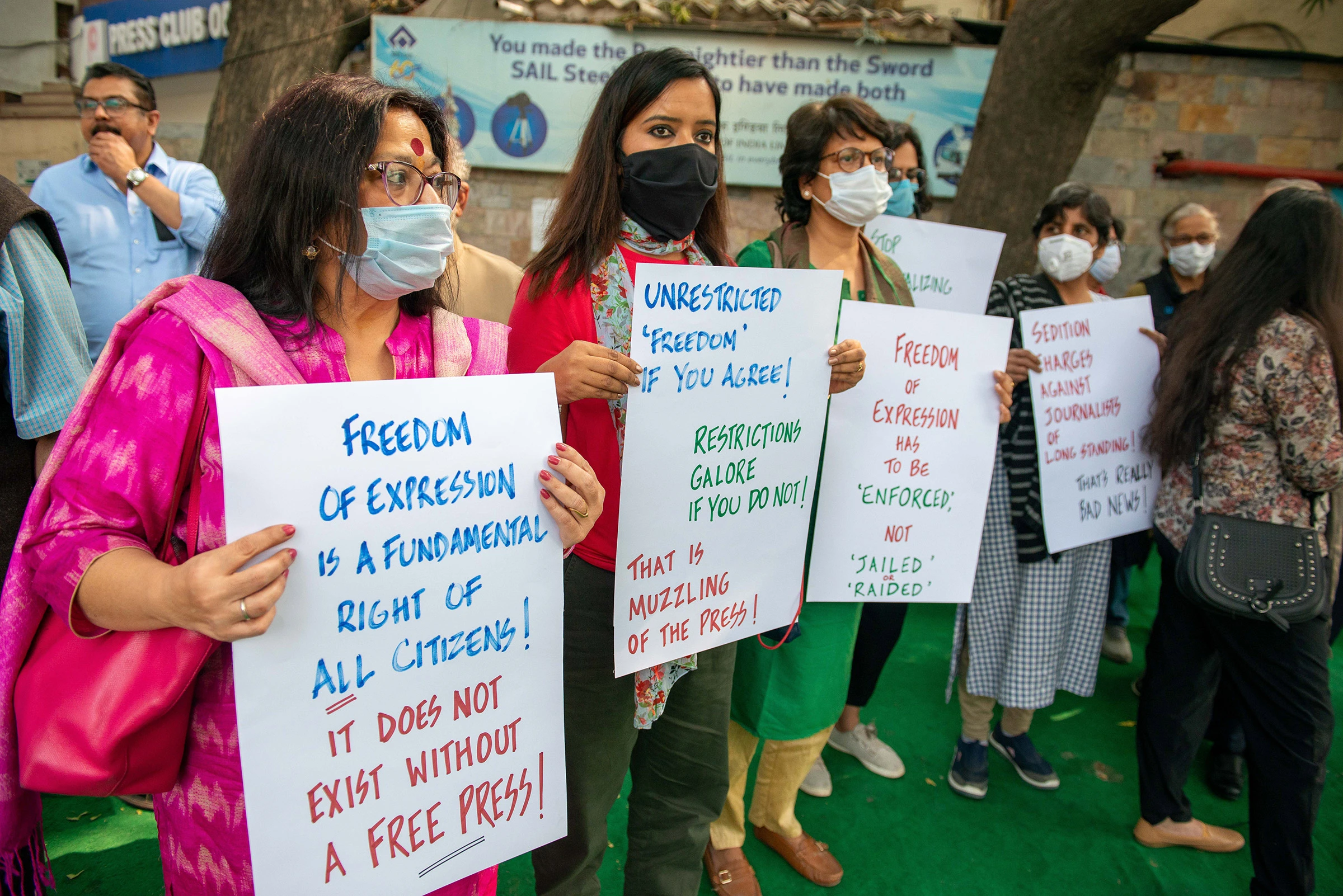India’s tax crackdown on the BBC, weeks after it aired a documentary critical of Prime Minister Narendra Modi, has made news around the world. But foreign correspondents based in the country say this is not the first act of hostility by the Modi government.
Privately, since 2019, they allege they have been facing visa uncertainty, denial of travel permits, even deportation threats, prompting them to conduct internal surveys to capture the extent of the harassment.
These surveys, which Scroll has seen, paint a picture of growing intimidation, which many respondents attributed to their critical reporting of the government. They said the government wanted to suppress coverage of the persecution of religious minorities in India and regions such as Kashmir and Assam.
Many left anonymous comments in the surveys stating that they had been “summoned” by officials and ministers and shown “files” and “spreadsheets” detailing their “negative coverage”.
A journalist working for a European news organisation recounted an instance of the Indian embassy in their home country emailing the publication, asking it “not to cover Muslim persecution”. (Scroll has reviewed this email sent by a senior Indian diplomat to the news organisation in 2020. Identifying details are being withheld on request.)
The Foreign Correspondents’ Club in Delhi has shared the findings of these surveys with the Ministry of External Affairs, officials on the board of the club said. “The discussions are ongoing,” one of them said, requesting anonymity. “The ministry has told us they will be taking up the issues with the relevant authorities.”
Scroll has sought a response from the ministry to the allegations made by the foreign journalists in the surveys. The ministry is yet to respond.
Restricting access
The surveys were conducted by journalists based in Delhi, who are members of the Foreign Correspondents’ Club, among foreign correspondents all over the country. The first survey was carried out among 40 journalists in January 2020, in the aftermath of major upheavals in Jammu and Kashmir and Assam.
In August 2019, the Indian government revoked the special status of Jammu and Kashmir. As foreign journalists prepared to travel to report on the impact of the move, they were told by the external affairs ministry that they had to seek prior permission to travel anywhere in Jammu and Kashmir, including the capital, Srinagar.

Until then, only “parts of Jammu and Kashmir” were included in the government’s list of restricted and protected areas for which foreign journalists require travel permits from the home ministry. Even the partial restriction on travel to J&K had gone largely unenforced, barring a brief period in 1990, according to journalists who have been in the country for decades.
The noose, however, had started tightening since 2016. In May that year, the external affairs ministry sent an email to foreign correspondents “reiterating” that travel permits were required for visiting Nagaland, Sikkim, Andaman and Nicobar Islands, and parts of Manipur, Mizoram, Arunachal Pradesh, Uttarakhand, Himachal Pradesh, Rajasthan and Jammu and Kashmir. Two years later, it sent another reminder on similar lines.
But in August 2019, it extended the restrictions to the whole of Jammu and Kashmir, which has resulted in a near-total ban on foreign reporting from the former state that is now directly governed by New Delhi. No foreign correspondent has since independently gone on a reporting trip to the Kashmir valley.
In October, the Indian government arranged a Kashmir tour for select members of a European Union parliamentary delegation. Photo: PTI
Around the same time, Assam was updating its National Register of Citizens – a highly contentious exercise that critics said targeted religious and linguistic minorities. Although Assam was not officially on the list of places that foreign correspondents required a permit to visit, a foreign journalist was allegedly put back on a plane by state authorities in September 2019.
The January 2020 survey attempted to capture the extent of this clampdown. Of the 30 foreign journalists who had applied for travel permits in 2019 – most to report from Kashmir and Assam – 21 never heard back. (https://scroll.in/article/1044558/modi-is-trying-to-silence-the-foreign-press-heres-how)
